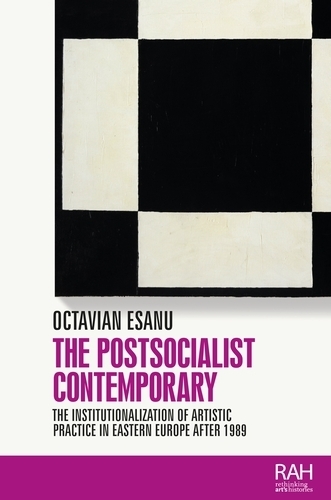
The Postsocialist Contemporary: The Institutionalization of Artistic Practice in Eastern Europe After 1989
(Hardback)
Publishing Details
The Postsocialist Contemporary: The Institutionalization of Artistic Practice in Eastern Europe After 1989
By (Author) Octavian Esanu
Manchester University Press
Manchester University Press
1st November 2021
United Kingdom
Classifications
General
Non Fiction
Social and cultural history
701.03
Physical Properties
Hardback
288
Width 156mm, Height 234mm, Spine 17mm
581g
Description
The Postsocialist Contemporary joins a growing body of scholarship debating the definition and nature of contemporary art.
It comes to these debates from a historicist perspective, taking as its point of departure one particular art programme, initiated in Eastern Europe by the Hungarian-American billionaire George Soros. First implemented in Hungary, the Soros Center for Contemporary Art (SCCA) expanded to another eighteen ex-socialist countries throughout the 1990s. Its mission was to build a western open society by means of art.
This book discusses how network managers and artists participated in the construction of this new social order by studying the programmes rise, evolution, impact and broader ideological and political consequences. Rather than recounting a history, its engages critically with contemporary art as the aesthetic paradigm of late-capitalist market democracy.
Reviews
'The value of The Postsocialist Contemporaryeven if it cannot answer these questionsis that it allows us to ask them more pointedly, with a greater historical understanding of the recent past and a more nuanced perspective informed by the supposedly marginal geographies of global capitalism.'
CAA Reviews
Author Bio
Octavian Esanu is Associate Professor in the Department of Art and Art History at the American University of Beirut (AUB) and Curator of AUB Art Galleries
